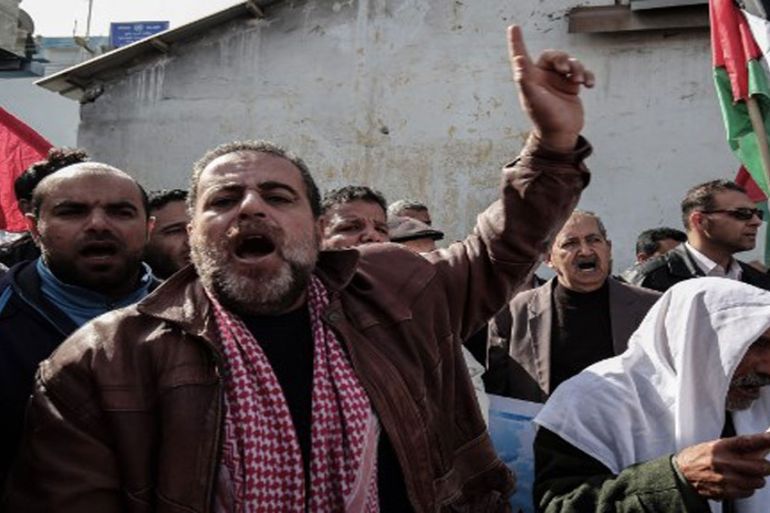Gaza under commercial strike amid worsening conditions
Private sector in Gaza Strip calls for a six-hour strike to protest living conditions amid ongoing blockade.

A general strike has been called for by the private sector in the Gaza Strip to protest worsening living conditions amid the ongoing blockade, which is threatening to collapse the enclave’s economy.
In a statement published last week, the Gaza Businessmen Association (Arabic) announced that the strike in commercial and economic institutions would start from 8am (06:00 GMT) and last for six hours on Monday.
“This urgent appeal comes as a last resort, after the catastrophic economic and living conditions of the Gaza Strip reached the point of zero,” the statement said.
The statement pointed out the economy has reached an “unprecedented level of decline”.
“Most notably, the unemployment rate is at 46 percent, the rates of poverty have exceeded 65 percent, and the rate of food insecurity for households in the Gaza Strip has reached 50 percent.”
Furthermore, rising unemployment rates among graduates have reached 67 percent, and a growing number of commercial traders who have been imprisoned as a result of their inability to pay their debts is a “reflection of the general economic deficit,” the statement added.
“We wish through this strike to send a message to our leaders – Arab leaders, international leaders, and to the United Nations,” Maher al-Taba, a member of Gaza’s chamber of commerce told Al Jazeera.
“The Gaza Strip will collapse soon, and we need immediate help. If the economy collapses, it will have impact everywhere – health, education and all services.”
‘Breaking point’
Ramadan, a shopkeeper, also told Al Jazeera that “Gaza is reaching a breaking point”.
“We will be on strike and we want the world to listen, to know our suffering and to help us find a solution,” he said.
The Gaza Strip has been under Israeli land, naval, and air blockade for more than 10 years. Egypt has also facilitated the siege by controlling the Rafah border crossing in the south, which is the only gateway to the rest of the world for Gaza’s population of 1.8 million.
Until recently, the coastal enclave was ruled by the Hamas movement but under the auspices of a unity government deal signed last October between Hamas and Fatah, the Palestinian Authority now controls the strip.
However, hopes that the unity government would relieve the Gaza Strip of its many economic woes were dashed as the national reconciliation process has seemingly stalled.
Issues such as the salaries of government employees, the electricity and water shortage crises, and the lack of available medicines remain unresolved, further contributing to what Palestinians say is already an unbearable situation.